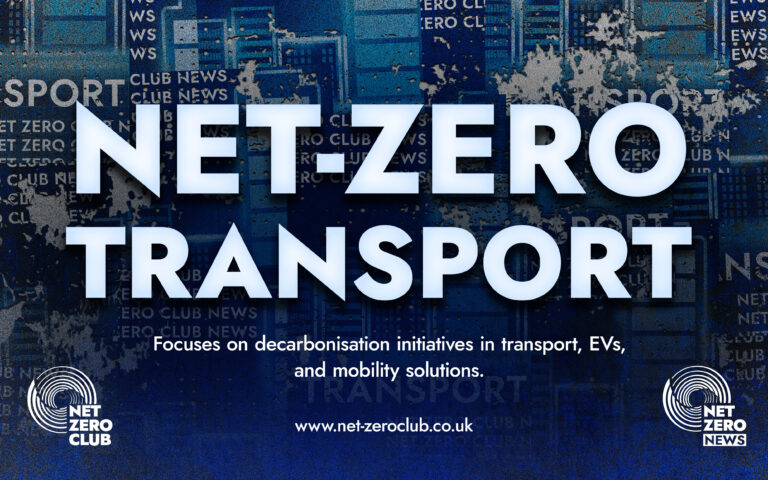UK EV Adoption Rebounds: Insights from PwC eReadiness Survey

Welcome, Net Zero News readers,
The winds of change are blowing favourably for electric vehicle (EV) adoption in the UK, as recent findings from PwC highlight a significant leap in the nation’s ‘eReadiness’. Climbing to fifth place out of 13 European countries, the UK is making notable strides in embracing sustainable transportation solutions. This survey paints a vibrant picture of a future where electric mobility is not just a concept but an everyday reality.
The rise in the UK’s eReadiness score is the second largest among the 28 countries surveyed, underscoring the nation’s commitment to fostering a greener and more sustainable transportation landscape. This resurgence can be attributed to multiple factors, including the reinstatement of electric car grants, the emergence of a wider array of affordable EV models, substantial price reductions in both new and used EVs, and the continuous enhancement of charging infrastructure across the country.
But what does ‘eReadiness’ actually mean? PwC’s index assesses how conducive a country’s market conditions are for the adoption and utilisation of electric vehicles. This evaluation is based on four critical factors: government incentives, infrastructure, supply, and demand. The findings from the 2025 eReadiness survey reveal a promising trajectory for EV adoption in the UK, driven by government support and fierce competition among automakers.
According to the survey, an impressive seven out of ten (70%) of UK respondents plan to purchase an electric car within the next five years, a rise from 65% the previous year. Meanwhile, scepticism surrounding EV ownership has declined significantly, with those unwilling to consider an electric vehicle dropping from 26% last year to just 18%. This shift in perception signals a growing acceptance of electric vehicles among the general populace.
The expansion of charging infrastructure is also accelerating at an impressive rate. The UK’s network has seen a remarkable 26% increase in the total number of charge points compared to 2024, with a notable 29% rise in faster chargers (50kW and above). The government’s proactive changes to infrastructure funding and the streamlining of grid connections are set to further enhance this growth, ensuring that the UK is well-equipped to support its burgeoning EV market.
In a bid to bolster this momentum, the UK Government has introduced additional incentives through the Electric Car Grant, which significantly offsets the recent removal of certain EV exemptions to vehicle excise duty slated for April 2025. This strategic move has positively impacted the UK’s eReadiness ranking, placing it favourably in comparison to other nations globally.
The satisfaction levels among EV owners are also noteworthy, with an impressive 88% expressing contentment with their vehicles. Over half (55%) of these owners are likely to recommend electric cars to friends and family, indicating a strong endorsement of the transition towards electric mobility.
However, challenges remain. The primary barriers to widespread EV adoption are linked to ‘performance anxiety’ and affordability. Key concerns include recharge times, limited range, uncertainty regarding battery life, and the higher upfront costs associated with purchasing electric vehicles. Addressing these apprehensions will be crucial in further accelerating adoption rates.
Dom Tribe, the automotive sector leader and partner at PwC UK, emphasised that the UK stands at a pivotal moment for EV adoption. He stated, “As we steer towards the future, strategic partnerships between the government, original equipment manufacturers (OEMs), suppliers, and infrastructure providers will be vital in offering a seamless transition to electric vehicles. The entry of Chinese manufacturers into the market is expected to have a significant impact on affordability, thereby providing consumers with a greater choice of affordable EVs.”
Looking ahead, Tribe underscored the necessity for robust long-term support from the industry, complemented by education and engagement initiatives that can foster trust among UK consumers. Tackling concerns related to ‘performance anxiety’ will be essential in positioning EVs as the cornerstone of sustainable transportation solutions.
Panos Stergiopoulos, PwC UK’s e-mobility leader, echoed these sentiments, heralding the research as a beacon of hope for the future of e-mobility in the UK. He remarked, “We are on the brink of achieving mass market EV adoption, but it is imperative to maintain our momentum, particularly if the UK is to meet its net zero targets. While technological advancements are poised to mitigate common hurdles such as high upfront costs and range anxiety, much work remains. The industry must intensify its efforts to enhance customer engagement and awareness, improve the overall customer experience, and dispel uncertainties surrounding EV operating costs, maintenance, resale value, and battery longevity.”
Progress is evident, but the journey towards a sustainable, electric future is ongoing. The UK’s strides in EV adoption are not just about cleaner transportation; they are a vital component of the broader vision to achieve net zero emissions. As we navigate this transformative era, it is crucial for all stakeholders to collaborate effectively, ensuring that the shift towards electric mobility is as seamless and beneficial as possible for everyone involved.
As we stand on the cusp of this electric revolution, we invite you, our Net Zero News community, to stay informed, engaged, and involved in the discussions and developments that will shape the future of transportation in the UK. Together, we can drive forward the momentum needed to not only meet our net zero goals but to inspire a new generation of sustainable, electric mobility that benefits both people and the planet.
Let us embrace this pivotal moment with optimism and determination, as we collectively strive for a cleaner, greener future.

 Got net-zero news, project updates, or product launches to share?
Got net-zero news, project updates, or product launches to share? 